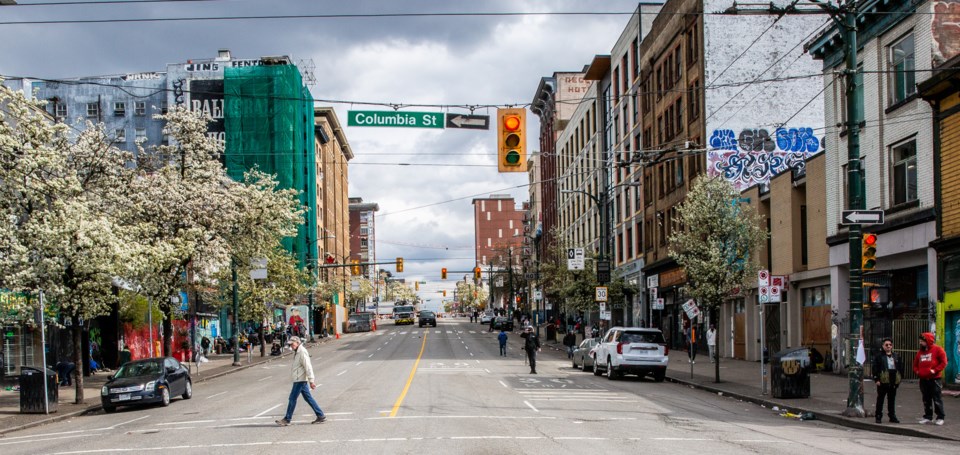Why is free public Wi-Fi not widespread in the Downtown Eastside?
It’s a question that advocates for neighbourhood residents have asked and want the City of Vancouver to do something about it.
Their voices appear to have been heard.
Acting on concerns from people such as Amanda Burrows of First United Church at Gore and East Hastings streets, Coun. Christine Boyle successfully introduced a motion March 13 that will see city staff report back by the end of 2024 with a plan, timeline and budget for expanding free public Wi-Fi in the Downtown Eastside and adjacent neighbourhoods.
“Access to Wi-Fi can be an absolute lifesaver in reducing social isolation and allowing people to stay in touch with their family and building stronger social networks,” Boyle told council.
“It also increases access to many vital publicly funded services — from the nurses’ hotline, and the city's own shelter hotline to life-saving overdose prevention apps.”
Currently, free public Wi-Fi is only available in some locations in the Downtown Eastside, whereas neighbouring Chinatown, downtown and the Commercial Drive corridor are well served, according to that shows Wi-Fi hotspots.
In partnership with Rogers and Telus, the city provides 521 free public Wi-Fi locations across Vancouver as part of the #VanWiFi project. This includes a mix of private and public access buildings such as community centres, branches of the Vancouver Public Library, and city and park board buildings.
COVID-19
Burrows, executive director of First United, was among the speakers to council last week who urged politicians to direct staff to expand free public Wi-Fi in the Downtown Eastside. Burrows reflected on the early days of the pandemic in her argument for Wi-Fi expansion.
“We knew that in order to decrease the spread of COVID, we needed to share information on social distancing, masks, handwashing, testing sites, etcetera,” she said.
“We came together on this issue. All levels of government, non-profits and the corporate sector provided thousands of smartphones, prepaid data free plans and public Wi-Fi. And the provincial government press release at this time even said, and I quote, ‘The need for internet connectivity has never been as important as it is right now.’”
In the post-pandemic era, however, Burrows said there is not the same coordination or access for ongoing basic needs.
“And it was never more apparent than this last winter in the extreme cold being on the frontlines in witnessing the scramble to disseminate information, and whether or not there are enough shelters, warming centres or warm clothes available,” she said.
“I witnessed countless people in the cold in despair. There was panic, confusion, and I know as a city we can do better. This can be alleviated by having Wi-Fi access.”
Economic development
Landon Hoyt, executive director of the Hastings Crossing Business Improvement Association, told council more widespread Wi-Fi access in the neighbourhood will also help enhance local economic development.
“That includes visitors to the area, tourists, as well as existing individuals who live and work in the community and are accessing our local businesses,” said Hoyt, noting the association represents more than 100 businesses.
Better Wi-Fi availability will also allow more people to report concerns related to safety and cleanliness, he said, noting the existence of “community navigator” programs, which operate as a community patrol service.
